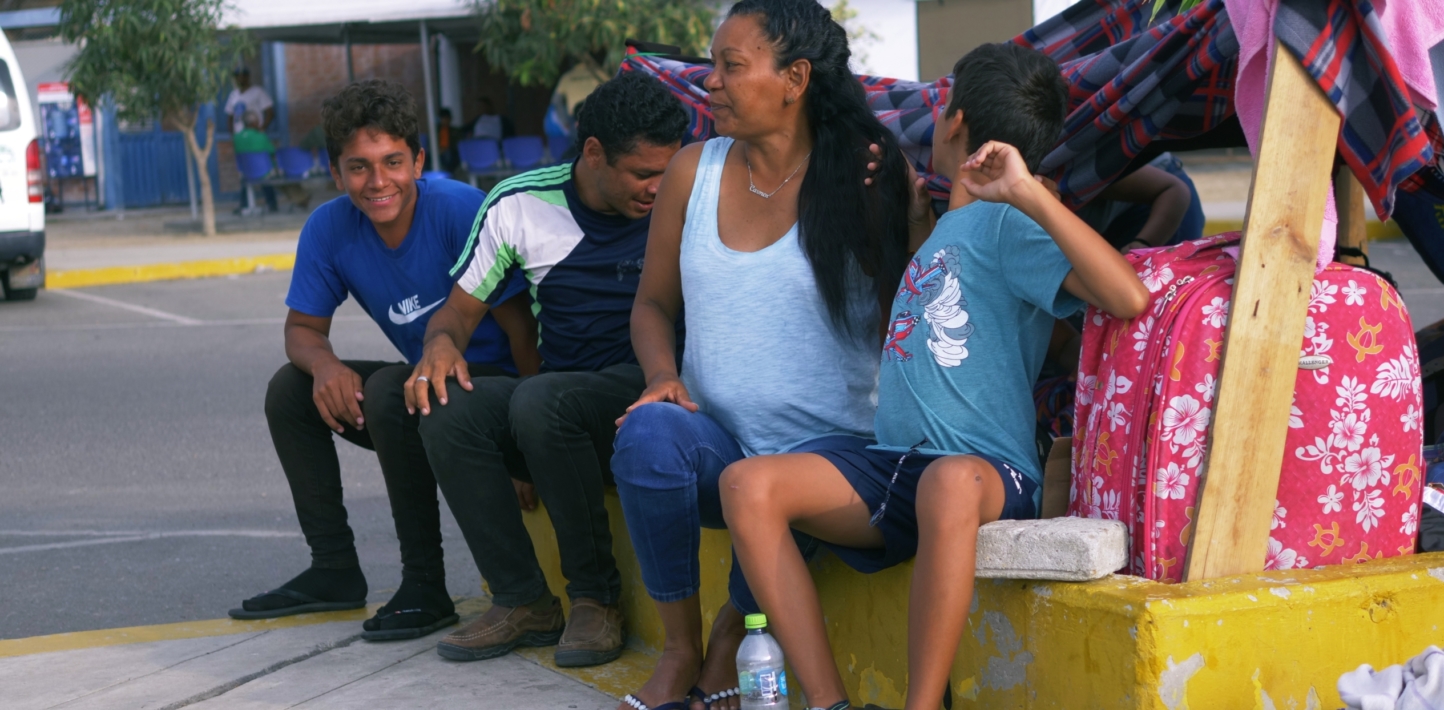In response to Peru’s inadequate protection of the human rights of refugees from Venezuela, and given the urgency posed by the COVID-19 pandemic, which has hit Peru particularly badly, the Peruvian authorities should regularize the migratory status of all Venezuelan women, men and children in the country, said Amnesty International ahead of World Refugee Day. Peru has the world’s largest population of Venezuelan asylum seekers, at over 482,000, and is home to 830,000 Venezuelans in total, according to official data.
“Peru has been unwilling or unable to adequately protect the rights and dignity of Venezuelans fleeing massive human rights violations in their home country. In the face of the additional challenges posed by COVID-19, Peru should regularize all Venezuelans with irregular status as the most effective means to protect the health of all people in the country,” said Fernanda Doz Costa, deputy Americas director at Amnesty International.
“Venezuelans face unspeakable challenges in the enjoyment of their human rights, not only in their home country but also when they seek to safely rebuild their lives in other countries in the Americas. Venezuelans who have fled their homes have experienced obstacles seeking asylum, entering other countries, accessing health care, living a life free from discrimination and violence, and even retaining adequate housing. States must protect them from these human rights violations, many of which have been exacerbated by the pandemic.”
Peru has been unwilling or unable to adequately protect the rights and dignity of Venezuelans fleeing massive human rights violations in their home country
Fernanda Doz Costa, deputy Americas director at Amnesty International
An unprecedented human rights crisis continues in Venezuela, where millions are struggling to survive, unable to meet even their minimum needs for food, water and healthcare, while living under the threat of Nicolás Maduro’s policy of repression against those who express their discontent. As of 5 June 2020, 5.1 million people had fled the country in recent years.
Peru shares an obligation with other states in the Americas to protect the people who have fled Venezuela. The majority of Venezuelans fleeing the country are refugees and entitled to international protection, either under the international Refugee Convention or regional Cartagena Declaration, regardless of formal state recognition.
In the report In search of safety: Peru turns its back on those fleeing Venezuela, published in February 2020, Amnesty International noted how, since June 2019, Peru has introduced a series of measures with the deliberate aim of restricting entry to the country, in violation of its international, regional and domestic obligations. Among its recommendations, predating the pandemic, Amnesty International called on Peru to “develop a regularization scheme for Venezuelans in Peru with irregular status, which is inclusive of all Venezuelans, regardless of the date they entered the country or whether they entered irregularly.” The current context urgently heightens the relevance and usefulness of such a measure.
In the same report, Amnesty International called on the Peruvian government to “pursue rigorous steps to ensure protection of Venezuelans from refoulement,” which is a return – banned under international law – to a risk of serious human rights violations. A comprehensive regularization scheme for Venezuelans with irregular migratory status would help protect against refoulement. It would also reduce the number of Venezuelans who, unable to meet their basic needs in Peru, find themselves forced to return to Venezuela only to face the same human rights violations they sought to leave behind, as well as alarming conditions imposed on returnees, such as temporary detention, deplorable quarantine centres, and stigmatization from authorities.
Public officials in Peru must also ensure that the public discourse and response to COVID-19 do not contribute to xenophobia and discrimination. The COVID-19 virus does not discriminate, and neither should state authorities
Marina Navarro, executive director of Amnesty International Peru
The pledges made during the recent International Donors Conference convened by Spain and the EU need to be used to implement creative and effective policies to protect human rights, such as a comprehensive regularization scheme for Venezuelans.
“Peru needs to consider new and creative solutions to ensure the right to health of every person in the country. All people in Peru, regardless of their nationality or migration status, have an equal right to health, without discrimination of any kind. We call for full respect for the principle of non-discrimination, because it is essential to overcoming the difficult challenge of this serious health crisis” said Marina Navarro, executive director of Amnesty International Peru.
“Public officials in Peru must also ensure that the public discourse and response to COVID-19 do not contribute to xenophobia and discrimination. The COVID-19 virus does not discriminate, and neither should state authorities, in Peru or anywhere else. The wellbeing of us all depends on the wellbeing of our most marginalized people.”
For more information or to arrange an interview, contact:
Amnesty International press office (Amnesty International Americas): [email protected]
Cecilia Niezen (Amnesty International Peru): [email protected]


